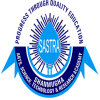How to become an Operations Research Analyst
Overview, Courses, Exam, Colleges, Pathways, Salary

Overview
Who is Operations Research Analyst ?
An Operations Research Analyst is a professional applying advanced analytical and mathematical techniques to help organizations make informed, data-driven decisions. They utilize their mathematics, statistics, computer science, and problem-solving expertise to solve complex problems and optimize processes in various industries such as finance, logistics, healthcare, transportation, and manufacturing.
Operations Research Analysts gather and analyze data, develop mathematical models, and create simulations to evaluate different scenarios and propose optimal solutions. They use techniques like linear programming, network analysis, statistical analysis, and data mining to identify patterns, trends, and opportunities for improvement. These quantitative methods assist in decision-making processes related to resource allocation, inventory management, scheduling, production planning, and risk assessment.
These professionals work closely with stakeholders, including managers, engineers, and executives, to understand their requirements and translate them into mathematical models and actionable recommendations. They are crucial in optimizing operations, reducing costs, increasing efficiency, improving processes, and maximizing corporate profits. Strong analytical skills, problem-solving abilities, and a solid understanding of mathematical and statistical concepts are essential for a successful career as an Operations Research Analyst.
Typical day at work
What does Operations Research Analyst do?
Problem Identification: They work closely with stakeholders to identify and define problems that require optimization or improvement.
Data Collection and Analysis: They gather relevant data from various sources, clean and organize it, and perform rigorous analysis using statistical methods and modeling techniques.
Mathematical Modeling: Operations Research Analysts develop mathematical models representing real-world systems and processes. These models help simulate different scenarios and evaluate the impact of various decision alternatives.
Optimization: They use mathematical programming and algorithms to find the best solutions to complex problems. This may involve optimizing resource allocation, production scheduling, supply chain management, or inventory control.
Performance Evaluation: Analysts assess the performance of existing systems or proposed solutions by analyzing key performance indicators, conducting sensitivity analyses, and evaluating trade-offs.
Decision Support: They provide decision-makers with actionable insights and recommendations based on the analysis and modeling outcomes, enabling informed decision-making that aligns with organizational objectives.
Implementation and Monitoring: Analysts assist in implementing recommended solutions and monitor their effectiveness, making adjustments as necessary.
Abilities and Aptitude needed
What are the skills, abilities & aptitude needed to become Operations Research Analyst?
Analytical Skills: Strong analytical skills are essential to identify patterns, solve complex problems, and make data-driven decisions. This includes breaking down problems into manageable components and applying appropriate mathematical and statistical techniques.
Mathematical and Statistical Knowledge: A solid understanding of mathematics and statistics is fundamental for an Operations Research Analyst. Proficiency in linear algebra, calculus, probability theory, and statistical analysis is necessary for developing mathematical models and conducting data analysis.
Computer Programming: Proficiency in programming languages such as Python, R, or MATLAB is valuable for implementing mathematical models, conducting simulations, and analyzing large datasets. Knowledge of optimization software, such as Gurobi or CPLEX, is also beneficial.
Problem-Solving Abilities: Operations Research Analysts must possess strong problem-solving skills to define problems, formulate mathematical models, and devise optimal solutions. They should be able to think critically, approach problems from different angles, and develop creative strategies.
Communication and Collaboration: Effective communication skills are crucial for Operations Research Analysts to interact with stakeholders, understand their needs, and present complex analytical concepts clearly and concisely. Collaborative skills are essential for working in interdisciplinary teams and collaborating with decision-makers.
Attention to Detail: Operations Research Analysts must pay close attention to detail when working with complex data sets, mathematical models, and algorithms. Precision is crucial to ensure accurate analysis and reliable results.
Business Acumen: Understanding the business context and organizational objectives is important for an Operations Research Analyst. They should have a grasp of industry dynamics, market conditions, and financial considerations to align their analysis and recommendations with broader business goals.
Continuous Learning: Operations Research is a dynamic field with evolving methodologies and technologies. A mindset for continuous learning and staying updated with the latest advancements is vital for an Operations Research Analyst to adapt to new challenges and opportunities.
Salary
Salary for Operations Research Analyst?
Salary of An Operations Research Analyst is as follows :
- Minimum Monthly Salary: Entry-level operations research analysts can expect a monthly salary ranging from INR 25,000 to INR 40,000. These initial earnings are typical for individuals who have recently completed their education and are commencing their careers in this specialized field.
- Maximum Monthly Salary: Highly experienced and specialized operations research analysts with advanced skills, years of practice, and roles in complex analytical areas may earn anywhere from INR 80,000 to INR 1,50,000 or more monthly. Analysts working in renowned organizations specializing in intricate optimization, decision-making, or contributing to advancements in operations research may command higher salaries.
- Annual Salary: The annual salary for entry-level or junior operations research analysts could range from INR 3,00,000 to INR 6,00,000. Analysts gain experience, develop expertise in specific analytical techniques, and potentially take on supervisory roles. Their annual income can increase from approximately INR 6,00,000 to INR 12,00,000 or higher.
- Highest Paying Jobs and Scope: Operations research analysts specializing in supply chain optimization, logistics, financial modelling, or data analytics enjoy better salary prospects. Those who contribute to innovative decision support systems, collaborate with other analysts, or work on complex business cases may have enhanced earnings. Operations research analysts are pivotal in improving organizational efficiency, optimizing processes, and aiding data-driven decision-making. With the increasing importance of data analysis and optimization in various industries, skilled operations research analysts are expected to have promising career opportunities. Professionals who excel in quantitative analysis, modelling, problem-solving, and effective communication will likely experience substantial career growth and advancement within operations research.
Pathways
How to become an Operations Research Analyst?
Entrance Exam
Entrance Exam for Operations Research Analyst ?
Courses
Which course I can pursue?
Best Colleges
Which are the best colleges to attend to become an Operations Research Analyst?
Industries
Which Industries are open for Operations Research Analyst?
- Manufacturing and Supply Chain: Operations Research Analysts help optimize production processes, supply chain management, inventory control, and logistics in manufacturing industries such as automotive, aerospace, consumer goods, and pharmaceuticals.
- Transportation and Logistics: Analysts are crucial in optimizing routes, scheduling, fleet management, and resource allocation in transportation and logistics companies, including airlines, shipping companies, trucking firms, and courier services.
- Healthcare: In the healthcare industry, Operations Research Analysts contribute to improving patient flow, resource allocation, medical staff scheduling, inventory management, and healthcare delivery optimization in hospitals, clinics, and healthcare systems.
- Finance and Banking: Operations Research Analysts support financial institutions in portfolio optimization, risk management, fraud detection, algorithmic trading, credit scoring, and investment analysis.
- Energy and Utilities: Analysts in this industry optimize energy generation, distribution networks, resource allocation, demand forecasting, and pricing strategies in electricity, gas, and water utilities.
- Consulting and Advisory: Many Operations Research Analysts work for consulting firms, providing analytical expertise and optimization solutions across multiple industries. They assist clients in improving operations, reducing costs, and making informed decisions.
- Government and Defense: Operations Research Analysts are employed in government agencies and defense organizations to optimize resource allocation, defense planning, logistics, emergency response, and public policy analysis.
- Technology and Software Development: Operations Research Analysts contribute to developing algorithms, models, and optimization software in various industries. They work on projects related to machine learning, data analysis, and decision support systems.
internship
Are there internships available for Operations Research Analyst?
Internship opportunities in this field provide valuable hands-on experience and the opportunity to apply theoretical knowledge in practical settings. Internships are in various industries, including manufacturing, transportation, healthcare, finance, consulting, and government.
Internships for Operations Research Analysts typically involve working closely with experienced professionals on real-world projects. Interns may assist in data collection and analysis, contribute to mathematical modelling and optimization efforts, and support decision-making processes. They may also be able to use software tools and programming languages commonly employed in operations research.
Internships provide a learning and skill development platform, allowing interns to gain practical knowledge in problem-solving, data analysis, mathematical modelling, and communication. They also provide valuable networking opportunities, insights into the industry, and potential career paths.
To find internships as an Operations Research Analyst, it is advisable to search for openings on job portals, company websites, and through university career services. Networking with professionals in the field and participating in industry events can also help identify internship opportunities.
Career outlook
What does the future look like for Operations Research Analyst?
The future for Operations Research Analysts appears promising. As organizations increasingly rely on data-driven decision-making and optimization, the demand for skilled analysts is expected to grow. With advancements in technology, such as artificial intelligence and machine learning, Operations Research Analysts will have access to more sophisticated tools and techniques. Additionally, the expansion of industries seeking optimization solutions, such as healthcare and renewable energy, will create new opportunities. Overall, the future holds a positive outlook for Operations Research Analysts, with increasing importance placed on their expertise in driving efficiency and strategic decision-making.




.webp)


